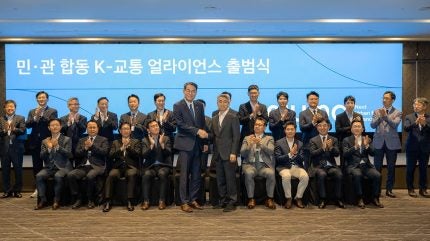
South Korea’s Hyundai Motor Group says its Hyundai and Kia divisions will establish the Next Urban Mobility Alliance (NUMA), a collaborative effort aimed at revolutionising urban transport through mobility technologies.
This public-private partnership seeks to tackle societal and environmental issues by promoting inclusive mobility innovations and expediting the shift towards intelligent urban environments.

Discover B2B Marketing That Performs
Combine business intelligence and editorial excellence to reach engaged professionals across 36 leading media platforms.
Currently, NUMA comprises 31 member organisations, including the Ministry of Land, Infrastructure and Transport to private entities like Hyundai Motor Company, and academic institutions such as Seoul National University.
The inauguration of NUMA took place at the Grand Walkerhill Seoul, South Korea, symbolising the commencement of an open collaboration framework that unites government bodies, the private sector, research institutions, and academia.
The key areas include transforming local transportation systems with AI, implementing autonomous mobility-as-a-service, and broadening AI mobility to support smart city initiatives.
The platform will facilitate technology demonstrations, policy harmonisation, and interdisciplinary cooperation to further the evolution of mobility.
At the launch event, Hyundai Motor Group presented various inclusive mobility prototypes, including AI-driven transport solutions and vehicles designed to cater to individuals with mobility restrictions due to disability, age, or social circumstances.
The alliance was initially unveiled at Hyundai Motor Group’s Pleos 25 conference in March, with an aim to focus on reshaping mobility via AI, software-defined vehicles (SDVs), and autonomous driving technologies.
Beyond NUMA, Hyundai Motor Group said that it is addressing transportation challenges in underserved regions and for individuals with mobility difficulties.
Initiatives include Shucle, an AI-based demand-responsive transport platform, mobility solutions like the ‘R1’ device and Nano Mobility integrated with the Shucle platform, and the Autonomous Vehicle Foundry, which aims to supply electric vehicles (EVs) with autonomous driving capabilities to mobility services.
Hyundai Motor Group recently conducted the Pleos SDV Standard Forum, which established a software-centric collaboration framework in anticipation of SDV mass production.
Hyundai Motor Group Advanced Vehicle Platform (AVP) Division head and president Chang Song said: “As a founding partner, Hyundai Motor Group is committed to realizing inclusive mobility through technology — connecting communities and improving access for those with limited transportation options — and further driving a global mobility transformation in more cities around the world.
Recently, Hyundai Motor Company and Kia Corporation have enhanced their partnership with South Korean battery manufacturers LG Energy Solution, Samsung SDI Company, and SK On Company, focusing on the development of new safety standards for EVs.






